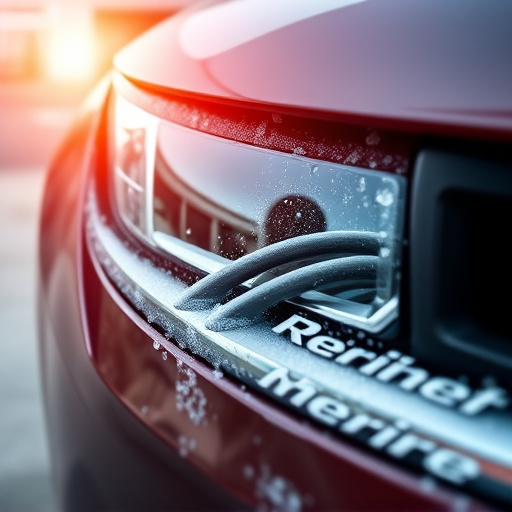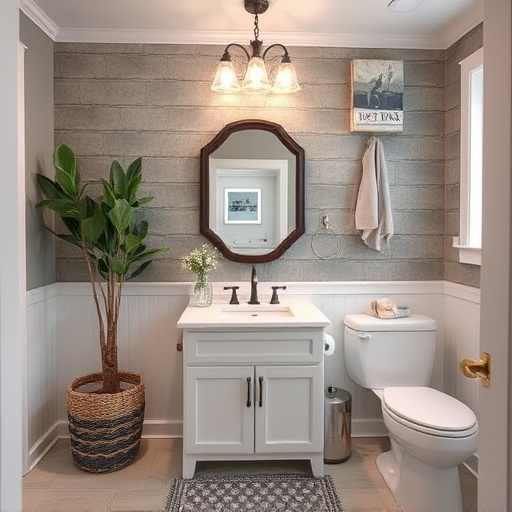Residential window tinting is a strategic investment that blocks solar heat, reduces energy consumption and cooling costs, especially in hot climates. It protects furniture and flooring from sunlight-induced fading and damage through premium automotive-grade films backed by warranties. Unlike vehicle wraps focused on aesthetics, residential tinting prioritizes practical benefits for homeowners, offering long-term comfort and savings while maintaining cooler interiors and decreasing reliance on air conditioning systems.
Residential window tinting offers a multitude of long-term benefits, enhancing both indoor comfort and property value. This article explores how advanced window tinting technologies significantly improve energy efficiency by reducing heat gain and lowering cooling costs. It also delves into the role of tinted windows in blocking harmful UV rays, providing custom light control, and enhancing privacy. Additionally, we’ll discuss their durability, safety features, and environmental advantages, including protection against sun damage, shatter resistance, and mitigating the heat island effect.
- Enhanced Energy Efficiency and Cost Savings
- – Explain how window tinting reduces heat gain
- – Discuss its role in lowering cooling costs
Enhanced Energy Efficiency and Cost Savings

Residential window tinting isn’t just about style; it offers significant enhanced energy efficiency and cost savings. By blocking a substantial amount of solar heat from entering homes, window tinting reduces the need for air conditioning, leading to lower utility bills. This is particularly beneficial in hot climates, where families can expect to see a notable decrease in their energy consumption and expenses.
Furthermore, residential window tinting can extend the lifespan of furniture and flooring by preventing direct sunlight from causing fading or damage. Many professional tint services offer premium automotive-grade films that come with warranties, ensuring lasting protection. Unlike custom graphics or vehicle wraps, which are often seen in the context of custom vehicle wraps, residential tinting focuses on practical benefits for homeowners, providing a smart investment in both comfort and cost savings.
– Explain how window tinting reduces heat gain

Window tinting is an effective solution for reducing heat gain in residential spaces, which offers numerous long-term benefits. The film applied to windows blocks a significant portion of the sun’s harmful UV rays and limits the amount of radiant heat that enters buildings through their glass surfaces. This is especially beneficial during warmer months when the external temperature can significantly impact indoor comfort. By reflecting the sun’s energy back outside, residential window tinting helps maintain a cooler interior, thereby reducing the reliance on air conditioning systems.
Compared to untinted windows, tinted ones can lower the internal temperature by up to 60°F (32°C), which not only enhances overall comfort but also contributes to substantial energy savings over time. This is a particularly appealing aspect for homeowners looking to implement eco-friendly and cost-efficient solutions, especially considering that advanced ceramic coatings in window tint films can provide even better heat rejection compared to traditional vehicle wraps or enhancements.
– Discuss its role in lowering cooling costs

Residential window tinting isn’t just about enhancing privacy or protecting your skin from UV rays; it plays a significant role in lowering cooling costs for your home. By blocking out a substantial amount of solar heat, window tints reduce the workload on air conditioning systems, which translates to lower energy bills throughout the year. This is particularly beneficial in regions with hot climates, where cooling can account for a large portion of household expenses.
Unlike temporary solutions, residential window tinting offers a long-term investment that pays dividends over time. By reducing heat transfer and keeping your home cooler, it not only saves on energy costs but also extends the lifespan of your HVAC system, which is often one of the most significant expenses in a household’s budget, much like how vehicle wraps provide scratch protection for cars and automotive detailing enhances their aesthetics, window tinting boosts the comfort and value of your living space.
Residential window tinting offers more than just style and privacy; it’s an investment with long-term benefits. By reducing heat gain, window tinting plays a significant role in enhancing energy efficiency and lowering cooling costs. This eco-friendly solution not only saves money on utility bills but also contributes to a greener environment. For homeowners seeking both comfort and sustainability, residential window tinting is a smart choice that provides year-round advantages.














